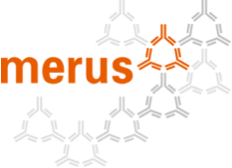Tag: preclinical data
Company News: Merus Presents Preclinical Data on its Novel Bispecific Antibody MCLA-117 at EHA 2013

– Clinical Candidate Designed for the Treatment of Acute Myeloid Leukemia (AML) –
Merus B.V., a biopharmaceutical company focusing on innovative human antibody therapeutics, has presented preclinical data on its antibody MCLA-117 at the Annual 18th Congress of the EHA 2013 (European Hematology Association) in Stockholm. The compound is being developed for the treatment of acute myeloid leukemia (AML), a disease with very poor long-term prognosis.
MCLA-117 activates the patient’s own immune system by simultaneously binding to the CLEC12A molecule expressed by AML tumor cells and the CD3 molecule expressed by T cells. CLEC12A is a myeloid differentiation antigen that is expressed on 90-95% of de novo and relapsed AML cases and is selectively expressed on leukemic stem cells.
Co-incubation of patients´ resting T cells and AML tumor cells via MCLA-117 resulted in efficient tumor cell lysis, i.e. the potent killing of cancerous AML cells. By introducing mutations in the heavy chain constant region CH2 domain, Merus was able to develop an antibody that in peripheral blood mononuclear cell (PBMC) assays prevented the release of non-specific, pro-inflammatory cytokines, while retaining its full capacity to induce T cell-mediated elimination of AML tumor cells.
The MCLA-117 antibody is based on Merus’ proprietary Biclonics™ ENGAGE platform. Human bispecific antibodies from this platform can be manufactured and administered like conventional, full-length IgG molecules, thereby providing for high yield, good stability and a long serum half-life.

